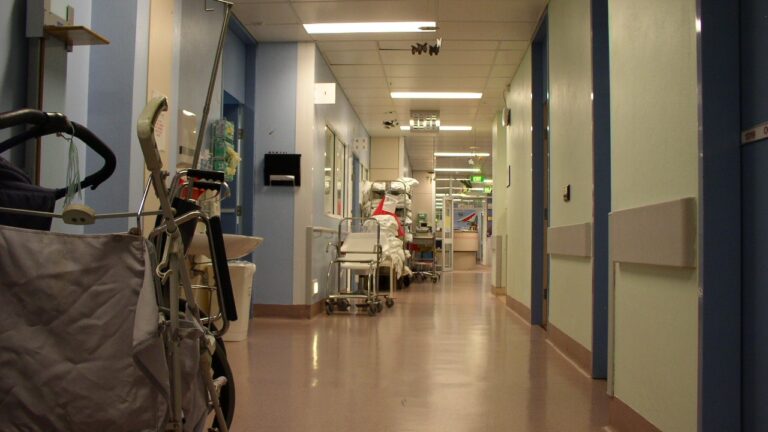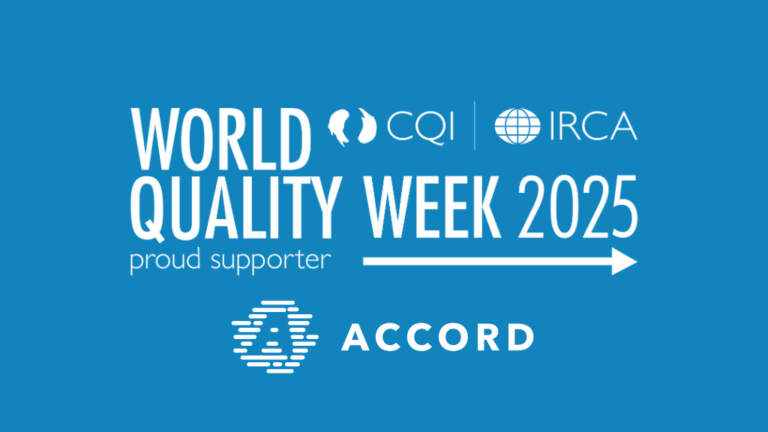- Why Accord
- PricingWe don’t hide behind fancy sales teams before we tell you, our prices.
- Clients
See who we are working with and what they have to say about Accord.- Resources
Procurement Central to NHS Development

The NHS is one of the world’s leading health systems for quality and the very best value for money; it is a national success story. But can it improve?
In May 2012 the Department of Health published a Best Practice Guidance document titled ‘NHS Procurement: Raising our Game’. The document states that the NHS can and must improve. It describes the actions that NHS trusts and the Department of Health should take to improve NHS procurement.
‘Procurement should be central to driving quality and value in the NHS’
NHS staff have needed to find or devise new tools and better ways of working to develop the NHS along the years to accompany the increasing demands it faces; a growing population with an extending lifespan; advances in knowledge, science and technology and ever-increasing expectations from the public. To meet the demands, stick within funding and at the same time improve quality, the NHS are looking to understand how better, smarter and more efficient procurement practices will help make savings.
Procurement has not been a priority over the years until the National Audit Office report demonstrated the scope for improvement and cost savings. The report drove a need to improve the way the NHS procure services and products to ensure patients get the highest quality care possible and add value back to the organisation.
‘The Government believes procurement can play a valuable role in both dealing with the deficit and stimulating growth in the economy’
Through improved procurement it is believed that there is a scope for the NHS to save £1.2 billion, but requires leadership at all levels and most importantly direction and involvement at board level to deliver these efficiencies and benefits.
Reports show that NHS procurement is lagging behind industry procurement performance and there is a need for trusts to collaborate, share data and harness the immense purchasing power that the NHS represents to improve their procurement practice and performance.
The document from the Department of Health calls for action to be taken immediately to make collaborative procurement a reality and have good procurement practice spread quickly and effectively throughout the organisation.
The need to improve procurement in the NHS was identified through the NAO report. A great deal of wasted money was found because of a fragmented system and lack of any formal mechanism. There was no correlation to volumes and the prices paid as trusts were charged different prices for the same goods, but also no set practice to assess value for money.
What approaches do the NHS need and want to take to improve procurement?
The NAO made a number of recommendations to improve NHS procurement:
- Greater transparency on prices being paid to suppliers by individual trusts
- Improve procurement data and enable price comparisons whilst improving stock control and patient safety.
- Make greater use of e-commerce systems to improve management information.
- Improve control over purchasing and ensure that purchases are made using agreed contracts.
- Make procurement a strategic priority.
- Collaborate with other trusts to improve their procurement infrastructure, including sharing of resources.
Chief Executives of Trust want to:
- Be advised of core technologies and systems required to assist better procurement, including technologies to promote price transparency and comparison along with product performance.
- Execute easily understood key performance indicators for procurement so they can compare their own trust’s performance with their peers.
- See a longer term transformational change programme for procurement.
NHS Procurement Professionals want:
- Greater support from trust Boards and Executives.
- Improved arrangements of procurement and business objectives.
- Investment in e-procurement systems to improve data transparency and spend information.
- Increased opportunities for benchmarking activities, such as product price comparisons.
How can modern approaches improve NHS procurement?
To improve procurement and treat it as a strategic priority it requires action at all levels of the system, but most importantly at trust level. To deliver and achieve value for money the Best Practice Guidance outlines six areas of improvement which incorporate each boards aims.
- Levers for Change
Contract compliance is a key measure in achieving world-class performance and to encourage trusts to put in place policies and systems to deliver this. Modern systems that can display a dashboard of indicators and measures can help strengthen the Trusts accountability for procurement; the system will ensure compliance and framework agreements to produce effective procurement performances. - Transparency and Data Management
There is a need for greater transparency in procurement. Trusts need to have access to all sources of information and the board is aiming for a ‘Contracts Finder’ to be used in the process. Consequently Trusts can then share procurement data for the purposes of benchmarking and to leverage the full power of NHS spend.
To improve transparency and data management the NHS will need to be supported to invest decisions in procurement technology. Taking the step to using procurement technology such as e-procurement systems will improve processes and provide the ability to manage expenditure through controlled catalogues, order goods electronically, manage inventory to its point of use, and source to increase the transparency of data and pricing.
The NHS should be using technology as a modern approach to supporting procurement and the management of stock. Trusts will be encouraged to invest more into procurement technology so they can improve their visibility of spend, have real time stock information and be able to share information and compare with others in the department.
It is understood amongst procurement professionals the importance of compliance with contracts; it is essential to have a set culture of compliance to bring non-pay spend under control. Effective and efficient procurement systems can support compliance by providing information on whether contracts are being used; this will enable Trusts to analyse procurement spend and set targets and activities for compliance against new and existing contracts. - NHS Standards of Procurement
A recent report showed that on average, procurement influences 60% of an organisations spend, and 75% of direct spend is under a contract, however the NHS is being left behind with less than 30% of the Trust’s spend being influenced by procurement, and less than 30% under contract.
The standards of NHS procurement is unsure as Chief Executives have admitted to not understanding what good procurement looks like. To modernise standards, the NHS need to revisit their procurement performance and practices and work alongside the launch of a set of procurement standards and strategies to ensure they are aligning with the Trusts business priorities. The new NHS standards of procurement will be a set of suggested indicators which will enable Trusts to measure their improvement as well as evolve standards as uses and experiences are shared.
A centralised procurement system, acting like a portal for NHS procurement will be able to maintain the organisation business standards as well as provide a library of tools and templates to support activity. - Leadership, Clinical Engagement and Reducing Variation
Along with any development to such an important re-haul in an organisation, the Trust’s Board should initially understand and determine if investments in people, processes and technology can deliver results in both terms of improved patient outcomes and cost reductions
Leadership is to be provided at all levels of the procurement system and be approached by; investing time into showing procurement is important, being prepared to sponsor and collaborate Trusts and procurement issues, appoint accountable executives to support the procurement function, ensure the procurement function gets the attention and recognition it deserves as well as engage senior management and clinicians to drive a cost-management culture.
The Clinicians’ engagement with suppliers is important; building relationships would in turn deliver safe and quality care. The new approaches to NHS procurement would call to encourage clinicians and budget holders to recognise and own procurement efficiencies in their management of budgets, link procurement costs to their service line reporting and reduce variation, challenge specifications and manage demand for products and services.
To create the savings needed and to develop procurement standards, the Trust need to identify best practice with the clinicians to share agreed processes across the system – more value can be delivered by trusts collaborating on these issues. - Collaboration and Use of Intermediaries
The procurement department’s role is to source, manage and combine and blend capabilities and resources successfully, either from inside or outside of the organisation. However Trusts rarely go through a robust decision-making process to decide what they want procurement partners to provide. It is quite often within the organisation that the Trusts do not appreciate the range, importance and opportunity procurement partners can provide for improving procurement performance. Partners in the process is about gaining additional expertise and resource from outside to support the key functional activities.
To decide whether procurement partners can support and deliver activities more effectively, Trusts need to now analyse their own internal capability for these key functional activities and asses their strength and the potential for improvement. Collaboration between procurement partners and NHS Trusts will help avoid duplication in the system and allows activities such as; category management, price benchmarking, logistics, supplier information management and catalogue management to be assessed and improved. - Suppliers, Innovation and Growth
Procurement is an important lever for economic growth, it is a potential driver for better public service and a mean of stimulating innovation within the NHS. The Government announced a package of procurement measures in November 2011, designed to support businesses and stimulate growth.
The package highlights the new intentions of NHS Trusts to procure and engage with suppliers as well as actively look for new and innovative solutions; conduct open dialogue with suppliers of a procurement process, challenge supplier to develop new products and solutions to meet known healthcare challenges.
The package of procurement measures will encourage the adoption and spread of innovative technologies and solutions across the NHS to identify improvements in the procurement process, as well as meet the Governments objectives and ensuring to capture innovation from suppliers to improve care for patients.
What actions does the NHS need to take?
The NHS need to review their practices and collaboratively work with procurement partners as well as the executives across all levels of the procurement system to ensure they align with business priorities.
The Trust should be gaining a better understanding of the improvements that need to be made to ensure improved coverage of data and contracts across the procurement system. Furthermore they should acknowledging the activities that need to be set against the Governments procurement pledge to drive and stimulate innovations in the procurement practice.
To improve procurement at all levels and help raise the game for NHS procurement; NHS Trusts should start by exploring contract management systems which can support the needs of the Trust but also enable them to have control of category management, price benchmarking, logistics, supplier information management and catalogue management.
An effective and efficient contract management system that is a central procurement platform for all levels of the procurement process will assist the shared access of information needed to collaborate departments, partners, suppliers as well as other Trusts. A central system will provide a hub to store all contract data and information to in turn drive savings and create longer negotiation times, so nothing gets missed in the process and patients can get the highest quality care possible.
Book a demoMore reasons to use Accord
It’s easy to get started.
Step 1
Book a demo of Accord with the team.
Step 2
We’ll chat through your requirements and see if Accord is right for you.
Step 3
We’ll send you demo access and our onboarding kit to help you decide what you need.
Step 4
You decide if we’re right for you. No pushy sales calls.
Step 5
Like what you see and hear? Let’s get you onboarded with Accord!
- Clients





